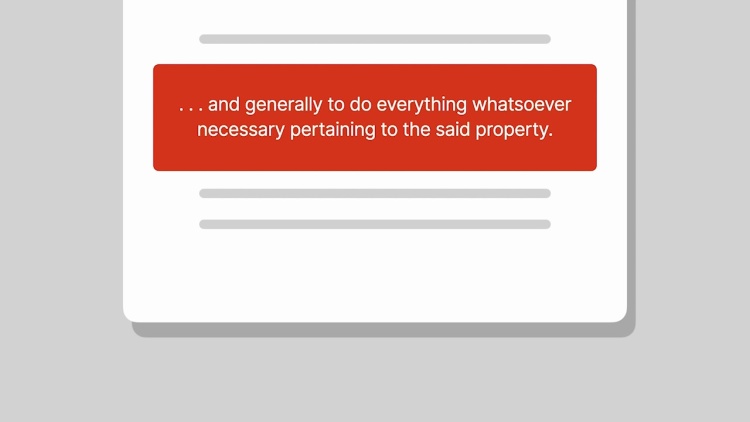King v. Bankerd
Maryland Court of Appeals
492 A.2d 608 (1985)
- Written by Jenny Perry, JD
Facts
Howard Bankerd (plaintiff) and his wife owned a house in Maryland as tenants by the entireties. Mrs. Bankerd moved out in 1966 due to marital problems, and Bankerd remained in the house. In 1968, Bankerd moved out, and Mrs. Bankerd returned to the residence. For the next 12 years, Mrs. Bankerd lived in the house, and Bankerd made no mortgage or tax payments and did not contribute to the upkeep of the residence. In 1975, Bankerd executed a power of attorney (POA) to Arthur King (defendant). The POA stated, in relevant part: “I . . . hereby . . . appoint [King], my attorney for me, and in my name to convey, grant, bargain and/or sell the [Maryland house] on such terms as to him may seem best . . . and generally to do everything whatsoever necessary pertaining to the said property.” Along with the signed POA, Bankerd sent King a letter referring to his plans for the property if he were to outlive his wife. Bankerd and King did not communicate with one another again until 1978. In 1977, Mrs. Bankerd asked King to transfer Bankerd’s interest in the property to her because it prevented her from selling or mortgaging the property. King believed that Bankerd had abandoned the property and did not care about it. Based on Bankerd’s age, King thought he might be deceased. King exercised the POA and transferred Bankerd’s interest to Mrs. Bankerd, who thereafter sold the residence. Bankerd received no consideration from either transaction. Bankerd sued King, alleging breaches of trust and fiduciary duty. The trial court awarded summary judgment to Bankerd. King appealed, and the Maryland Court of Special Appeals affirmed. The Maryland Court of Appeals then granted King’s petition for certiorari.
Rule of Law
Issue
Holding and Reasoning (Cole, J.)
What to do next…
Here's why 907,000 law students have relied on our case briefs:
- Written by law professors and practitioners, not other law students. 47,100 briefs, keyed to 996 casebooks. Top-notch customer support.
- The right amount of information, includes the facts, issues, rule of law, holding and reasoning, and any concurrences and dissents.
- Access in your classes, works on your mobile and tablet. Massive library of related video lessons and high quality multiple-choice questions.
- Easy to use, uniform format for every case brief. Written in plain English, not in legalese. Our briefs summarize and simplify; they don’t just repeat the court’s language.





